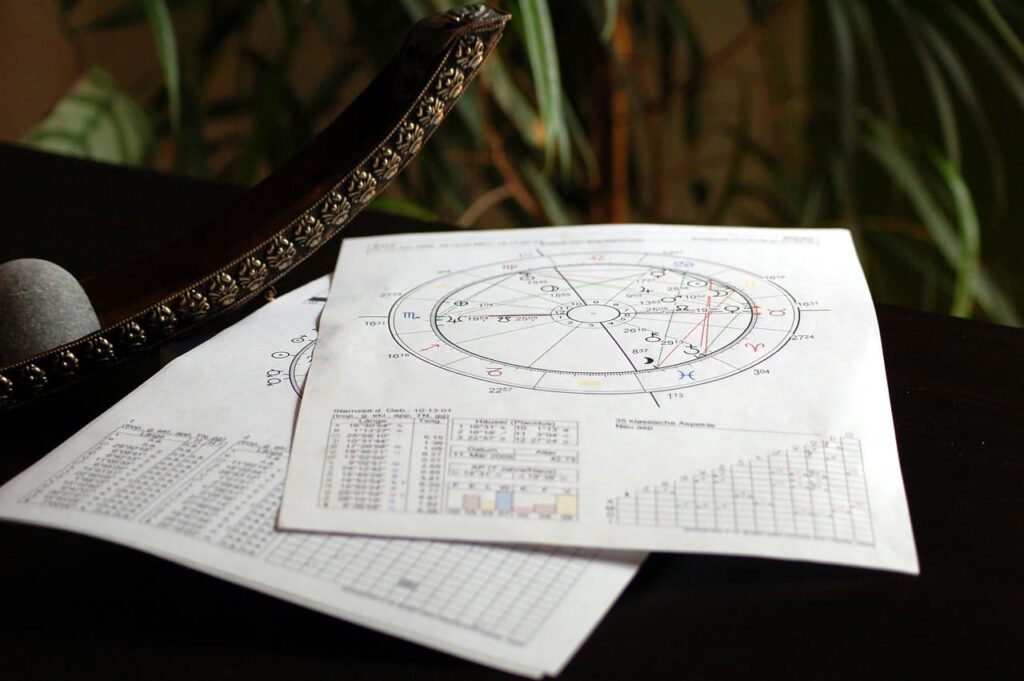Astrology, an ancient practice intertwining human fate with celestial movements, has captivated civilizations for millennia. This article delves into the historical evolution of astrological practices and beliefs, exploring their transformation from ancient times to modern interpretations.
The Origins of Astrology
Astrology’s roots trace back to Babylonian civilization around 2000 BCE. The Babylonians developed the first organised system of astrology, primarily focusing on celestial omens. They believed that the gods communicated through planetary movements and star patterns, which could predict events and guide decisions. This early form of astrology laid the groundwork for future developments in the field.
As Babylonian astrology spread, it influenced neighbouring cultures, particularly the Greeks. Greek scholars such as Ptolemy played a crucial role in refining astrological concepts. Ptolemy’s work, “Tetrabiblos,” became a cornerstone text, systematising astrological practices and merging them with philosophical and scientific thought. This synthesis made astrology more accessible and intellectually respectable in the classical world.
The Greek adaptation of astrology introduced the zodiac system, dividing the sky into twelve equal parts, each associated with different constellations. This system remains a fundamental aspect of modern astrology. The Greeks also emphasised the importance of the ascendant, the zodiac sign rising on the eastern horizon at the time of one’s birth, which plays a significant role in an individual’s astrological profile.
Astrology in the Middle Ages
During the Middle Ages, astrology thrived in the Islamic world and mediaeval Europe. Islamic scholars preserved and expanded upon Greek astronomical knowledge, integrating it with their own astronomical observations. Figures like Al-Kindi and Al-Farabi made significant contributions, enhancing the precision and complexity of astrological charts.
In mediaeval Europe, astrology was intertwined with medicine and natural philosophy. Universities included astrology in their curricula, and practitioners were often sought after for medical and agricultural advice. The belief in astrology’s efficacy was so profound that even monarchs consulted astrologers for political and personal guidance.
The Renaissance period marked a high point for astrology, with renewed interest in classical texts and humanistic values. Astrologers like Johannes Kepler, though primarily astronomers, practised astrology and sought to reconcile it with emerging scientific discoveries. Kepler’s laws of planetary motion, for instance, were motivated by his astrological inquiries.
Astrology in the Enlightenment and Beyond
The Enlightenment brought scepticism towards astrology, as rationalism and empirical science gained prominence. However, astrology did not disappear; it adapted. The 19th and 20th centuries saw the rise of psychological astrology, influenced by Carl Jung’s theories. This modern approach emphasises personal growth and self-understanding, shifting focus from deterministic predictions to introspective guidance.
In the early 20th century, astrologers began integrating psychological theories into their practice. Carl Jung’s work on archetypes and the collective unconscious provided a framework for understanding how astrological symbols could reflect inner psychological states. This shift marked the beginning of a more introspective and self-reflective form of astrology, moving away from the predictive focus of traditional astrology.
Astrology experienced a resurgence in the 1960s and 1970s, driven by the countercultural movement’s interest in alternative spirituality and self-exploration. This period saw the rise of sun sign astrology, popularised through newspaper horoscopes, which simplified astrological concepts for mass consumption.
Modern Astrology

Today, astrology enjoys a resurgence in popularity, particularly through online platforms and social media. While exploring various online resources, I came across Gra Fortuna, a site dedicated to a variety of board games. Although not directly related to astrology, it reflects the growing trend of seeking personal and social enrichment through diverse activities. This digital transformation has made astrology more accessible, allowing individuals to explore their astrological profiles with ease.
Astrology’s enduring appeal lies in its blend of mystery, introspection, and the human desire to find meaning in the cosmos. While scientific scrutiny may challenge its predictive power, astrology’s cultural and psychological impact remains significant. It continues to evolve, reflecting the changing dynamics of human society and our quest for connection with the universe.
The digital age has also brought new tools and technologies to astrology. Online birth chart calculators, mobile apps, and virtual astrological consultations have democratised access to astrological knowledge. Social media platforms like Instagram and TikTok have created vibrant communities where astrologers share insights, memes, and educational content, making astrology more engaging and relatable for younger generations.
Conclusion
The historical evolution of astrological practices and beliefs illustrates a fascinating journey from ancient celestial interpretations to contemporary psychological insights. Astrology’s ability to adapt and resonate with different eras underscores its enduring relevance. As we look to the stars, astrology invites us to explore not only the heavens but also the depths of our own psyche.